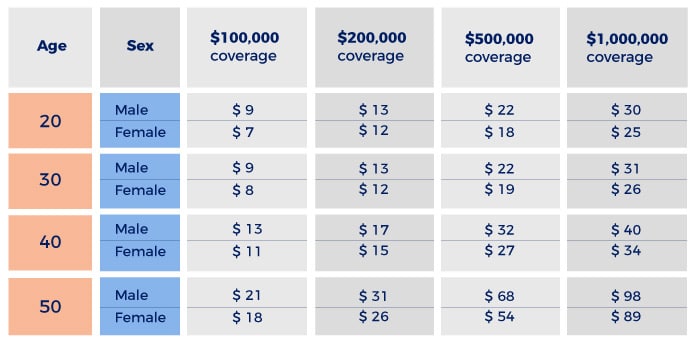
New Year, New Goals: Inspiring Clients to Secure Their Future with Insurance
As the holiday season winds down and a fresh year approaches, many individuals and families reflect on how to make the next year their best yet. New Year’s resolutions typically revolve around health, finances, and personal growth—but one area often overlooked is future-proofing financial and personal security through insurance.
For insurance agents, this is a golden opportunity to engage with clients. By positioning insurance as a tool for achieving long-term goals and highlighting end-of-year tax benefits, you can help clients enter the New Year prepared and protected.
Why Insurance Fits Perfectly into New Year’s Resolutions
When clients set resolutions, they’re thinking about improvement—better health, stronger finances, and a brighter future. Insurance aligns perfectly with these aspirations because it offers:
- Financial Stability
Insurance provides a financial safety net, ensuring clients can handle unexpected events without derailing their goals. For example, life insurance helps protect loved ones from financial hardship, while health insurance safeguards against costly medical bills. - Goal Reinforcement
Resolutions often fail because people don’t have plans to sustain them. Insurance acts as a tangible step toward achieving broader goals like securing a family’s future or building long-term wealth. - Peace of Mind
Starting the New Year with an insurance policy in place helps reduce stress. Knowing that life’s uncertainties are covered enables clients to focus on what truly matters. - Tax Advantages
For many types of insurance, purchasing before year-end can lead to immediate tax savings, giving clients a financial win to celebrate going into January.
Understanding the Tax Benefits of Insurance
Did you know certain insurance products offer significant tax advantages? Whether your clients are self-employed, have a high-deductible health plan, or want to make the most of their finances, here’s how insurance can reduce their tax burden:
| Insurance Type | Tax Benefit | Example |
|---|---|---|
| Health Insurance | Premiums may qualify as a deduction if you itemize. | Self-employed individuals can deduct 100% of their health insurance premiums. |
| Life Insurance | Provides estate tax advantages for beneficiaries in certain trust setups. | Using a life insurance trust to exclude proceeds from taxable estates. |
| Long-Term Care | Premiums for qualified policies may be deductible. | Deduction limits vary by age, starting at $480 for individuals under 40. |
| Disability Insurance | Policies tied to business overhead expenses may be deductible. | Business owners can deduct disability insurance tied to essential operational coverage. |
Encourage your clients to act now to secure these benefits before the tax year closes. A tax advisor can help them fully understand their options.
Proactive Steps to Engage Clients During the New Year
To make insurance a priority for your clients this season, follow these proven strategies:
- Use Goal-Based Messaging
Frame insurance as a tool for achieving goals. For example:- “Planning to start a family in 2025? Secure life insurance now while rates are lower.”
- “Want to manage medical expenses better? A health plan upgrade can save you thousands.”
- Focus on Timing
Create urgency by emphasizing how purchasing insurance before December 31 can lock in tax benefits, avoid rate increases, and ensure clients are protected from day one of the New Year. - Offer Personalized Consultations
Offer free end-of-year reviews to show clients how their current coverage supports—or falls short of—their evolving goals. - Address Objections with Empathy
Financial constraints are common during the holidays. Position insurance as an investment in stability rather than another expense.
Real-Life Example: How Insurance Helped a Family Achieve Peace of Mind
Last December, Emily and Marcus, a young couple with two children, purchased life insurance after a conversation with their agent. Initially hesitant due to holiday expenses, they realized the value of locking in lower rates while they were still young. By doing so, they secured financial protection for their children, and their premiums qualified as a tax-deductible expense for their business. Come January, they felt confident knowing their family’s future was secure.
FAQs
1. Why is New Year’s a good time to buy insurance?
The start of the year is perfect for re-evaluating priorities. Insurance helps clients build financial stability, peace of mind, and protection from unexpected events, aligning with common New Year’s resolutions.
2. What types of insurance offer tax benefits?
Health insurance, long-term care policies, and certain business-related disability policies often offer deductions. Life insurance can provide estate tax advantages in specific setups.
3. Can I wait until next year to purchase insurance?
While you can, acting now ensures you lock in current rates and take advantage of tax deductions for the current year. Premiums may increase in the future, so waiting could cost you more.
4. What if I’m unsure which type of insurance I need?
Consult an insurance professional who can assess your goals and recommend the best policy for your needs and budget.
Visualizing the Opportunity
To help clients see the urgency of taking action, here’s a graph showing how delaying insurance purchase can impact costs:

- This graph shows how premiums for life and health insurance increase as individuals age, emphasizing the importance of acting early.
Take Action Before the Clock Strikes Midnight
As the New Year approaches, remind clients that every moment counts. From locking in premiums to securing tax benefits, insurance provides immediate and long-term advantages that align with their goals. Encourage them to make this New Year their safest and most secure yet.





